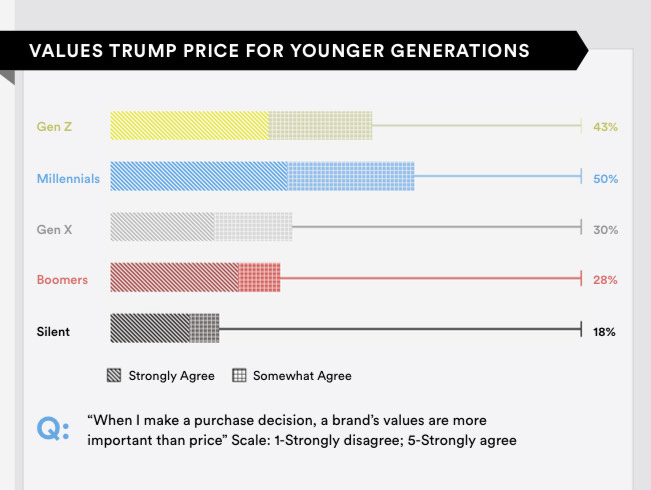The notion of “giving back to the society” can be a powerful tool and of immense benefit to a company.
Corporate philanthropy programs and philanthropic activities such as charity donations and taking care of the environment significantly impact companies and the community. With 51 percent of employees choosing not to work for companies with no social and environmental commitments, corporate social responsibility (CSR) is no longer an afterthought — it’s become a necessity.
In addition to creating an ethical image for the company, corporate philanthropy, and workplace giving offer significant benefits to a company, such as better PR marketing and employee engagement. In this article, we’ll be looking at six benefits of charity in the workplace.
Let’s dive in.
1. Boosts Employee Engagement
Employee engagement is the strength of the mental and emotional connection employees feel toward the work they do, their teams, and their organization.
While you can improve employee engagement via remote collaboration and teamwork, you can also achieve this through volunteer work or engaging in other activities as a team. Asides, employee engagement, 70 percent of employees believe volunteer work boosts employee morale even more than happy hours sponsored by the company.
Big corporations like Google embrace CSR activities to keep employees engaged.
In 2018, Google launched the Google.org fellowship that offered paid time off for interested employees to volunteer in non-profit organizations (NPO) and to lend their technical expertise to small businesses.
The Google.org Fellowship ensures that employees are in tune with the corporation’s values and ideals, through corporate social responsibilities that improve engagement and teamwork.
Engaging in charitable work shows employees your values as a socially responsible company. It also helps you motivate, attract and retain employees who’ll put in the effort, and develop stronger connections because they share and relate with your core values.
2. Helps in Team Building
Activities such as visiting orphanages, fundraising campaigns, helping out at retirement homes, and working in NGOs make good team-building activities while creating an ethical image for your company.
Such charity works give employees a chance to build interpersonal relationships with others thereby improving overall team strength. It’s also an excellent way to create a platform for employees from different departments or levels to share their life experiences with the team.
For instance, extroverted employees may use the opportunity to talk about private topics with other employees such as about their kids, sports or politics. These aside, team members function better when they share a similar experience — together or apart. And, workplace charity provides employees more than enough shared experience to base their team-building efforts.
3. Training and Development Opportunity
Companies with a clear structure for career and personal development attract and retain the best workers.
Charity initiatives that require communication and project management skills provide inexperienced employees a chance to acquire new leadership skills that further their career and improves confidence. These skills bring about mentorship, improves workplace bonding, mentorship, and a chance to develop business acumen.
Additionally, field experience counts as a development too. For instance, when employees work with localized or marginalized groups, to understand and solve their needs on a deeper level, they gain a higher cognitive ability that may come in handy in the office in the future.
This saves you time and capital spent in training workshops, and consultations, thereby increasing company profits.
4. Great Marketing and PR
“Public” philanthropic activities are good marketing strategies. While “public applause” shouldn’t be your sole reason for engaging in charity work, it counts as an add-on marketing benefit for your company.
Along with it, corporate responsibilities improve a company’s PR or help to set them right again in the public eyes. One example of CSR policies saving the day is with the Johnson & Johnson Tylenol scandal in September 1982.
Source: Daily Herald
Big Pharma Johnson & Johnson, voluntarily recalled 30 million Tylenol products after seven people in Chicago died after taking extra-strength Tylenol capsules. Though the company lost over $100 million, this event became a big display of a company taking responsibility for its influence on society.
Because the company did its part to take social responsibility for its actions, put customer safety above profits, they regained customers’ trust and was the biggest pharmaceutical company in the United States by total revenue, in 2021.
Source: Statista
You mustn’t make gigantic moves like Johnson & Johnson to get recognized. It’s okay to partake in CSR activities that impact the environment and people in it positively such as; promoting diversity and inclusion, workplace and social giving, fairtrade and environment-conscious investments.
While you’re at it, make good content of it and promote it to build your brand on social media. Share it with the press to create a relatable reputation for the company and boost PR that’ll attract new employees and CSR-conscious investors.
5. Creates Better Relationships With the Community
Community interaction that encourages a supportive culture can affect the lifespan of a company, especially at its early stages. Establishing good relationships with the local community helps businesses grow from local support, increasing chances of higher market share.
But financial reasons aside, donations and acts of charity make the community a better place. Charitable contributions such as building homes for the elderly, improving parks, schools or giving kids a haven to play and learn all count as charity.
By doing this, you’ll improve people’s quality of life in the community, thereby creating better and stronger interactions. To do this at work, engage your employees by aligning their donation choices to causes that mean the most to them. As seven out of ten employees would rather work with companies where their goals align, this is doable.
For example, Brixio donated to the Livestrong Foundation when the young daughter of an employee was diagnosed with cancer. This move initiated a partnership between Brixio and Livestrong, hence fostering relationships with other companies with social giving as part of their core value.
6. Builds Your Brand as a Socially Conscious Company
With many companies and businesses existing today, the need to attract customers to your brand and come out top of the competition is ever necessary. However, since your customers are making a choice, you need to be strategic in how you project and promote your brand to attract the right people. Using the right tools to find target email addresses would help personalize the branding message to your audience.
A key factor for choosing a brand — especially for Millennials — is how much positive impact a company has on society. Millennials feel more optimistic about a brand’s values when involved in social activism, with about 50 percent of them admitting that brand values are more important to them than prices.
Source: PR Week
Being backed by a generation with trillions of dollars in spending power will benefit your company. Hence charitable donations and CSR activities make the public recognize you as a socially responsible and conscious company. For all of these reasons, you should consider how you’re building a socially conscious company, and ensure you account for this in your business plan.
In Conclusion
Workplace charity is beneficial in more ways than one — like we’ve discussed in this article. But if your company is just starting to incorporate CSR into its values, you might find it hard to adapt at first. Fortunately, there are quick and simple ways to launch your company’s charitable giving campaign.
Though you can engage in workplace giving and charity donations for many reasons, any reason at all can work. Just ensure it motivates you and those who work with you. Therefore, it’s pertinent to pick a cause that aligns with your company’s values for it to impact both business and work culture.








Leave A Comment